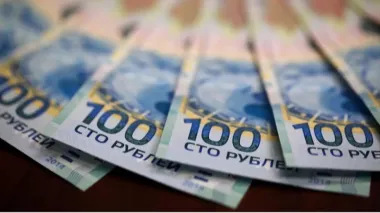Russian-style SWIFT: Russia turns to grain in foreign trade, says Reuters

Old-fashioned bartering is making a comeback in Russia's foreign trade, as companies circumventing Western sanctions exchange wheat for Chinese cars and flax seeds for building materials.
Source: Reuters
Details:The US, EU and their allies have enacted over 25,000 sanctions in response to Russia’s full-scale invasion of Ukraine in 2022 and its annexation of Crimea in 2014. Washington has also levied tariffs on India over its oil imports from Russia.
Kremlin leader Vladimir Putin claims the Russian economy is outperforming expectations, growing faster than G7 countries over the past two years despite predictions of a collapse. He has instructed businesses and officials to find ways to bypass the restrictions.
However, signs of strain are mounting: Russia’s Central Bank reports that the economy is technically in recession and grappling with high inflation. The 2022 disconnection of Russian banks from the SWIFT system, along with the US warning to Chinese banks in 2024 about potential secondary sanctions, has been particularly impactful. Fearing these penalties, Chinese banks are increasingly avoiding transactions with Russia.
It is these fears that are driving a revival of barter, which is harder to monitor. In 2024, Russia’s Ministry of Economy released a 14-page Guide to Foreign Barter Transactions, offering advice on exchanging goods and services without money transfers and even suggesting the creation of a dedicated barter exchange.
Commercial interest in barter has so far been limited. However, Reuters reports that at least eight such deals have been recorded, ranging from exchanges of steel and aluminium alloys for ship engines to other raw materials. Analysts caution that actual volumes are hard to gauge, but the US$7 billion gap between customs statistics and Central Bank data in the first half of the year may hint at the true scale of the trend.
Russian customs acknowledged the presence of barter with several countries but described its volume as negligible compared with overall trade. From January to July, Russia's foreign trade surplus dropped 14% to US$77.2 billion, as exports fell by US$11.5 billion to US$232.6 billion, while imports increased by US$1.2 billion to US$155.4 billion.
The Russian government and Central Bank claimed that no separate data on barter exists, as it is legally included within the overall trade figures.
Background:Barter is back in Russia for the first time since the 1990s, as payment problems caused by sanctions over the war in Ukraine have forced at least one Chinese company to seek steel and aluminium alloys in exchange for engines.
Support Ukrainska Pravda on Patreon !








